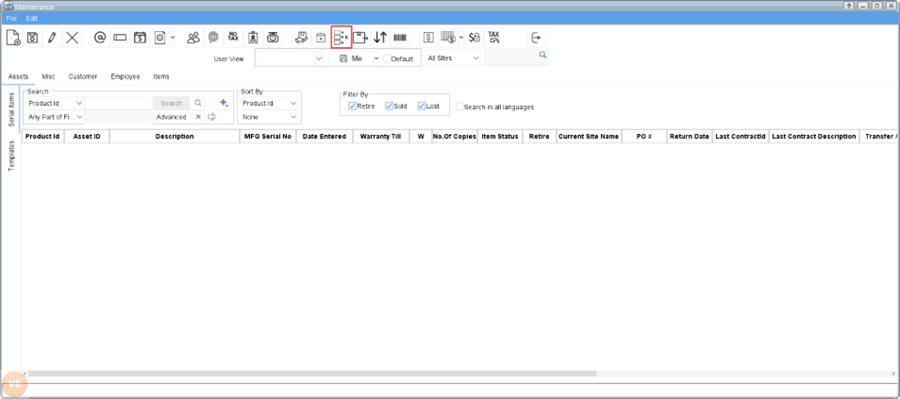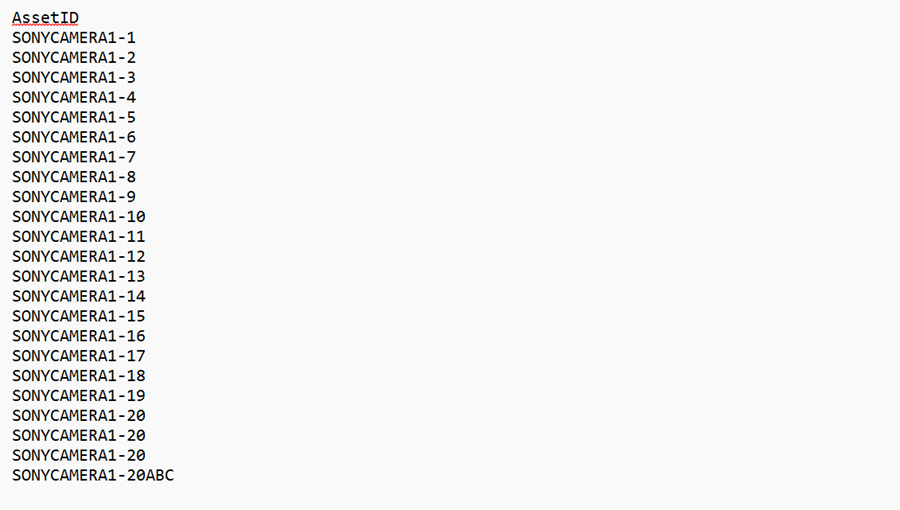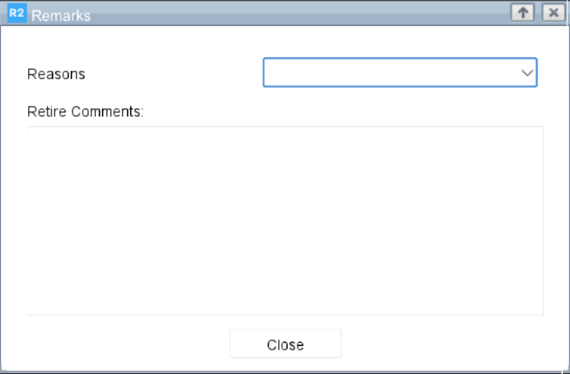Retire Assets
The Retire Assets feature enables Maintenance Admins to efficiently retire multiple assets using manual entering the asset ID, search, or file upload. This functionality simplifies asset lifecycle management and minimizes manual effort.
Accessing the Feature
Navigate to the Maintenance Module.
Click the Retire Assets button.

Figure 1.0: Retire Assets button
Retire Assets Window

Figure 1.1: Retire Assets Window
Asset ID: Scan or enter the Asset ID to be retired.
Search Assets: Opens the Search Assets window to select assets for retirement. Only assets with status In will be listed.
Import Assets from File: Upload a file containing newline-separated Asset IDs for retirement.
Assets for Retirement: Displays the list of assets selected for retirement.
Retire Assets: Retires the assets displayed in the grid.
View Scan Exceptions: Shows non-eligible assets in the grid along with the reason on non-eligibility.
Delete Selected Lines: Removes the selected assets from the grid (available via toolbar and right-click on the grid line).
Clear Scanned List and Exceptions: Clears all scanned assets and exceptions from the grid.
How to retire assets?
1. Asset Selection Methods
You can select assets for retirement using one of the following methods:
Enter Asset IDs
Manually enter asset ID in the text field or scan the asset.
Only assets with status IN are eligible.
Search and tag assets
Click the Search icon in the toolbar.
The grid displays only assets with status IN.
Tag the desired assets for retirement.
Upload Asset ID File
Click the Upload icon in the toolbar.
Upload a file containing newline-separated Asset IDs as shown below.
Listed assets in the file will appear in the grid.

Figure 2.0: Upload file
Grid View Columns
After selection, the assets marked for retirement display in the grid.

Figure 2.1: Assets list in the grid
Retirement Eligibility Criteria
Only assets with status IN can be retired.
Assets with active SWOs must be in one of the following statuses:
Estimate
Scheduled
SWOs in Suspended or Open for Edit status will block retirement.
Eligible SWOs will be automatically cancelled upon successful retirement.
Scan Exceptions
Non-eligible assets are logged under Scan Exceptions.
The View Scan Exceptions button becomes active when exceptions exist.
Clicking it displays details and failure reasons.
A sound is played when exceptions occur (based on employee defaults).
The following types of assets cannot be retired and will show up in Scan Exceptions:
Serial Kit assets
Assets that are locked to a kit
Part assets
Assets that are already retired
Non-serial items
Assets currently being used by another user
Assets linked to an SWO that is in Use or Suspended status

Figure 2.2: Scan Exceptions
Retiring Assets
Click the Retire Asset button in the toolbar.
A confirmation pop-up will appear. Click Yes to proceed.

Figure 2.3: Confirmation pop-up
Select a retirement reason and enter comments.

Figure 2.4: Remarks pop-up
Click Close to finalize the action.
The grid will update to show success or failure for each asset, along with reasons if applicable.

Figure 2.5: Retire asset results with remarks
Post successful retirement, the following parameters will be updated:
Asset Status:
Asset is marked as Retired.
Product Quantities
Owned Qty and Total Qty are reduced.
Availability is reduced
Locked Qty is reduced.
History
Asset Status History
Item Stock Change History
Asset Comments
SWO Updates
Associated SWOs are marked as Cancelled, if applicable.
